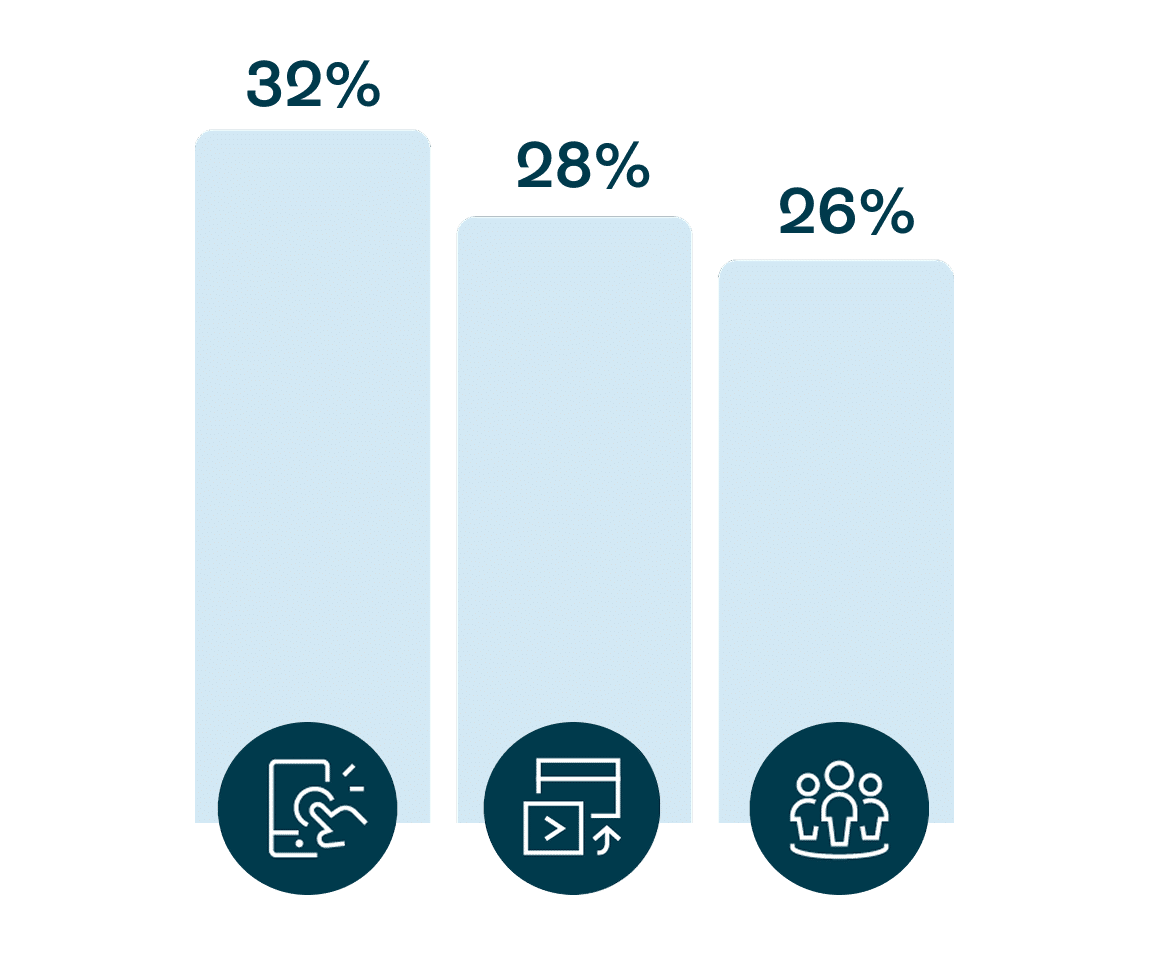

The State of B2B Contracts
Exploring contract management trends

2023 was the year AI made its mark on the world, and, as 2024 unfolds, the demand for automation has never been greater. It’s not only the state of B2B contracts that’s changing, it’s all areas of business.
However, this report is about contract management, a vital part of any business. B2B contracts affect entire organizations, playing a significant role in everything from
2023 was the year AI made its mark on the world, and, as 2024 unfolds, the demand for automation has never been greater. It’s not only the state of B2B contracts that’s changing in 2024, it’s all areas of business.rnrnIt’s not only the state of B2B contracts that’s changing, it’s all areas of business.


Briefly about contract management
Contract management is the process of handling agreements made with other parties, covering the entire contract lifecycle – from pre-sign to post-sign – including renewal, renegotiation, execution, compliance, and storage.
In this report, you’ll learn about:
The most important features for future contracts

The top reasons contracts are not signed
The use frequency of digital contracts are among companies
What ROI you can expect from implementing a digital contracting tool
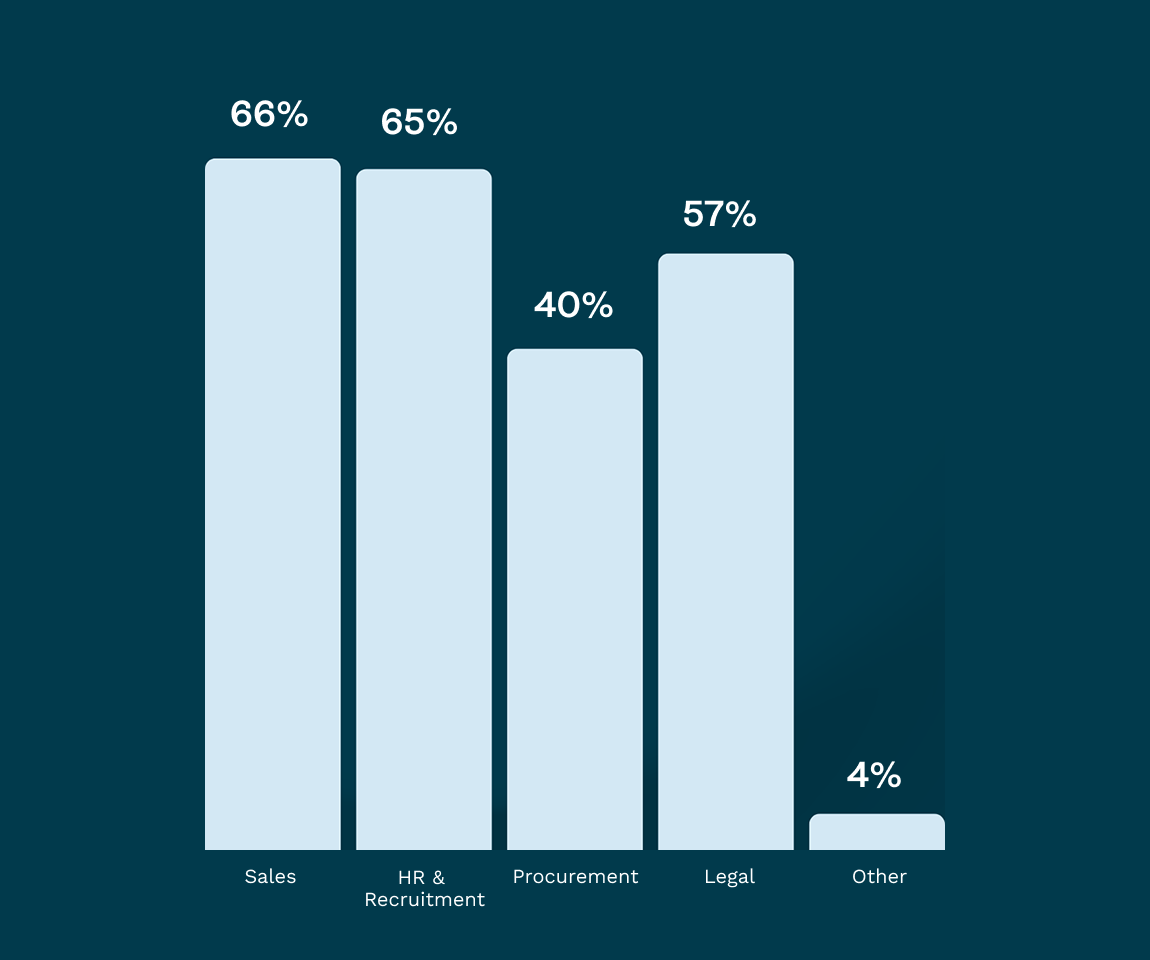

Methodology
Our goal with this report was to get a sense of how companies are managing their contracts today and in which direction they’re headed. We conducted a poll, asking 300 business professionals across two continents and seven countries about their contract management.
Our goal with this report was to get a sense of how companies are managing their contracts today and in which direction they’re headed. We conducted a poll, asking 300 business professionals across two continents and seven countries about their contract management.
Contract automation is
gaining traction

On a scale from 1-10, how important is contract automation to your company?
Respondents claim the most important feature for future contracts is the ability to sign on multiple devices. Second is the ability to integrate contracts into a CRM or platform of choice.
The ability to sign contracts on multiple devices is crucial for convenience, accessibility, and efficiency. It allows parties to execute agreements from anywhere, at any time, using their preferred devices.
Integrating contracts into a CRM or platform of choice is beneficial for centralizing data. For example, it allows for the collection of all customer-related data in one platform. It also makes the contracts more easily available, helping internal communication and collaboration across teams.
As for the expected ROI, it’s clear that most businesses are aware that a digital contracting tool can help them save time and money. We’ll probably see a rise in various contract automation tools in the coming year.
Demands for seamless B2B contracts signing


What would cause you not to sign a contract?
77% claimed that lack of clarity in clauses and terms would prevent them from signing a contract.


How many times do you open or read a contract before you sign?
40% of respondents don’t open a contract more than 3 times before signing!


How do you sign a contract?
80% of respondents sign their contracts using electronic signatures.
60% of them use a mixture of written and electronic signatures.
The difference in percentage between companies using e-signature vs written signature is surprisingly small. 30% of respondents claim that difficulty in signing would prevent them from signing a contract.
Signing a contract with written signatures requires the physical presence of both parties, which can be an obstacle. Electronic signatures allow parties to sign contracts whenever they see fit without being limited by locations or time zones. According to respondents, 50% only open the contract 1-3 times before signing. In other words, they prefer deals to be closed fast.
There’s still room for faster deals


How long does it take to get a contract signed?
75% of respondents get a contract signed in one week. Only 17% of respondents get a contract signed in less than one day.


How many stakeholders on average are involved in a negotiation before a contract is signed?


Have any of your deals or contracts been affected by the tool or technology that you use for signature collection?
1 in 3 have had a deal or contract negatively affected by the technology they use for signature collection.
How fast should a contract be signed? Well, if you ask the parties, most of them would probably prefer the deal to close within a day or two. A supermajority of 75% of respondents get a contract signed in a week, and that’s a good number. However, there’s room for improvement. Only 7% of respondents get a contract signed in less than one day. That number could be higher.
For deals to close faster, the signing process needs to be on point. More companies are looking to adopt electronic signatures and digital contracts. The signing process is faster than ever before, and new technology is being developed as we speak.
Unfortunately, 27% have had a deal or contract negatively affected by the technology they use for signature collection. As new tools keep emerging, the competition will become tougher, and companies will be pickier. It’s no longer about whether you should invest in an automation tool, it’s about what tool to invest in.


Watch out for last-minute edits
Change of terms is the top reason for contracts not getting signed. Anything that requires edits to the contract can slow down the signing process and cause the deal to fall through. 77% claimed that the most important thing when signing a contract is that no edits are needed. Additional edits will cause delays, especially if the contract is physical and a new version needs to be printed.
However, with digital contracts, edits can be made quickly and effortlessly. To combat last-minute edits, businesses are investing in automation tools that allow for smoother, more flexible signing processes.


Pricing was mentioned as the second biggest hurdle in getting contracts signed. This can be tackled by using a contract management system, like Oneflow, giving you access to interactive pricing tables with automated calculations. A contract management tool will help you make pricing information easily available and transparent.
The third biggest challenge was legal complexity, which can be addressed by using clear language in terms and clarity in workflows. For example, approval workflows and signing orders, like who should sign first, need to be clearly defined and transparent from the very beginning of the contract process.
Digital contracts vs paper contracts
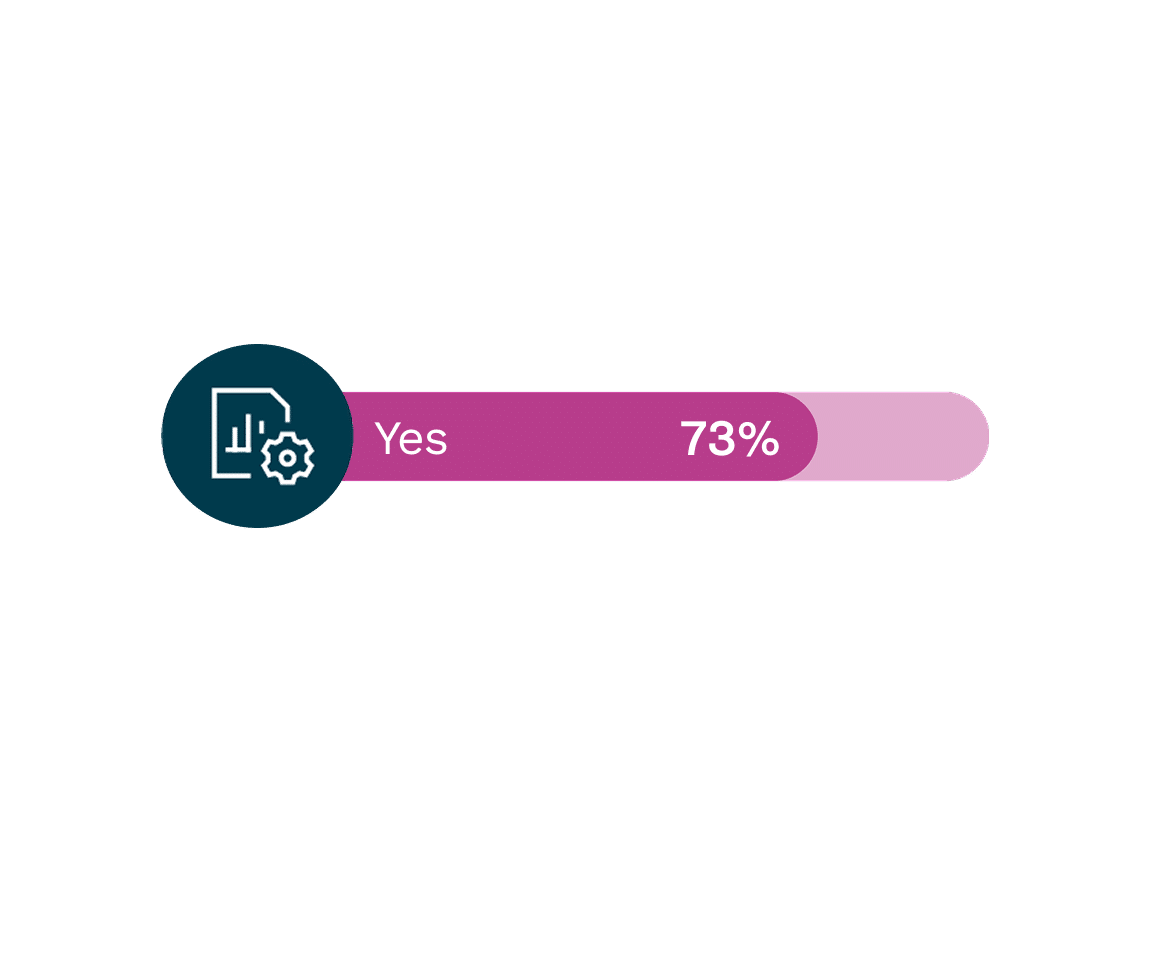
Do you use the same software for contract signing and creation?
73% of respondents answered yes!
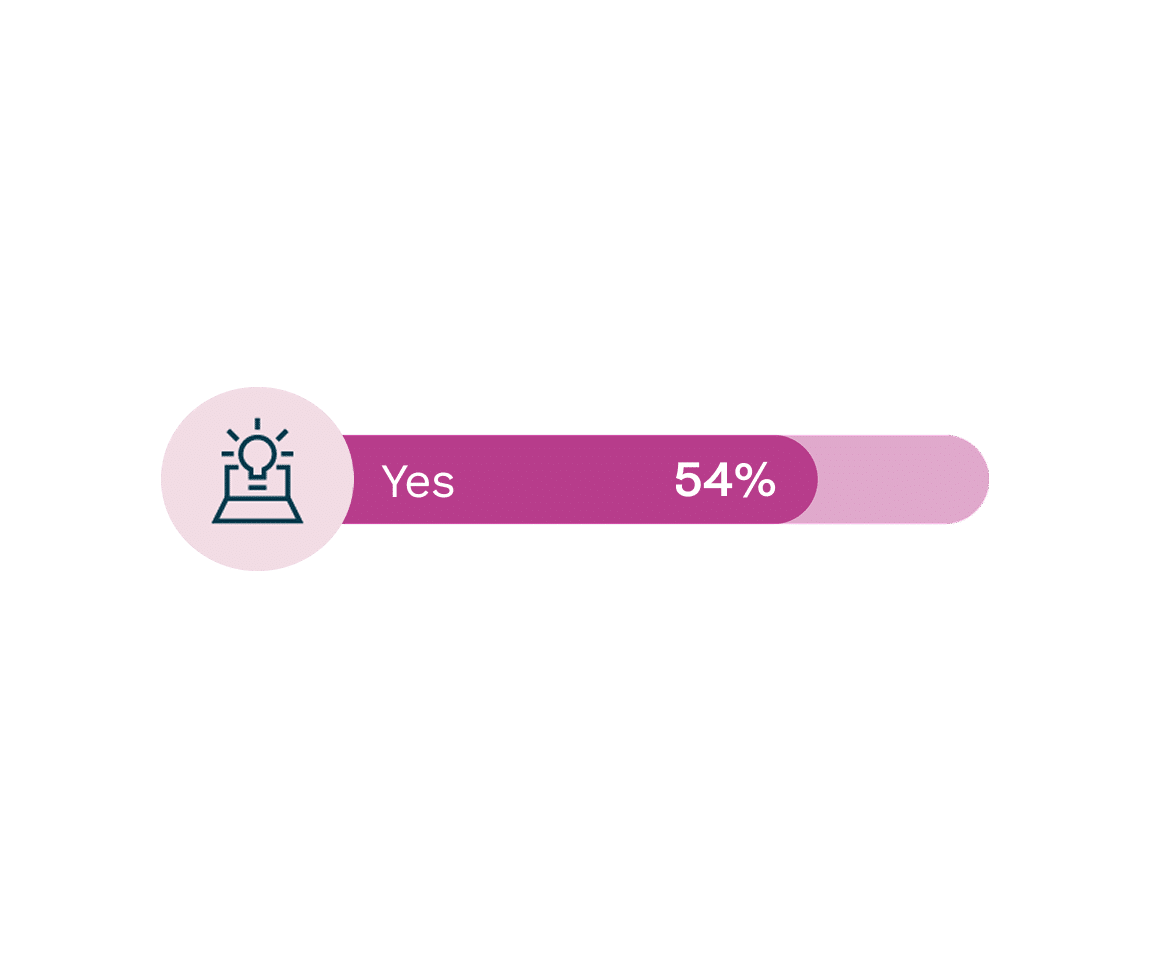
Where do you store your contracts?
54% store their contracts electronically on their computer or in the cloud.
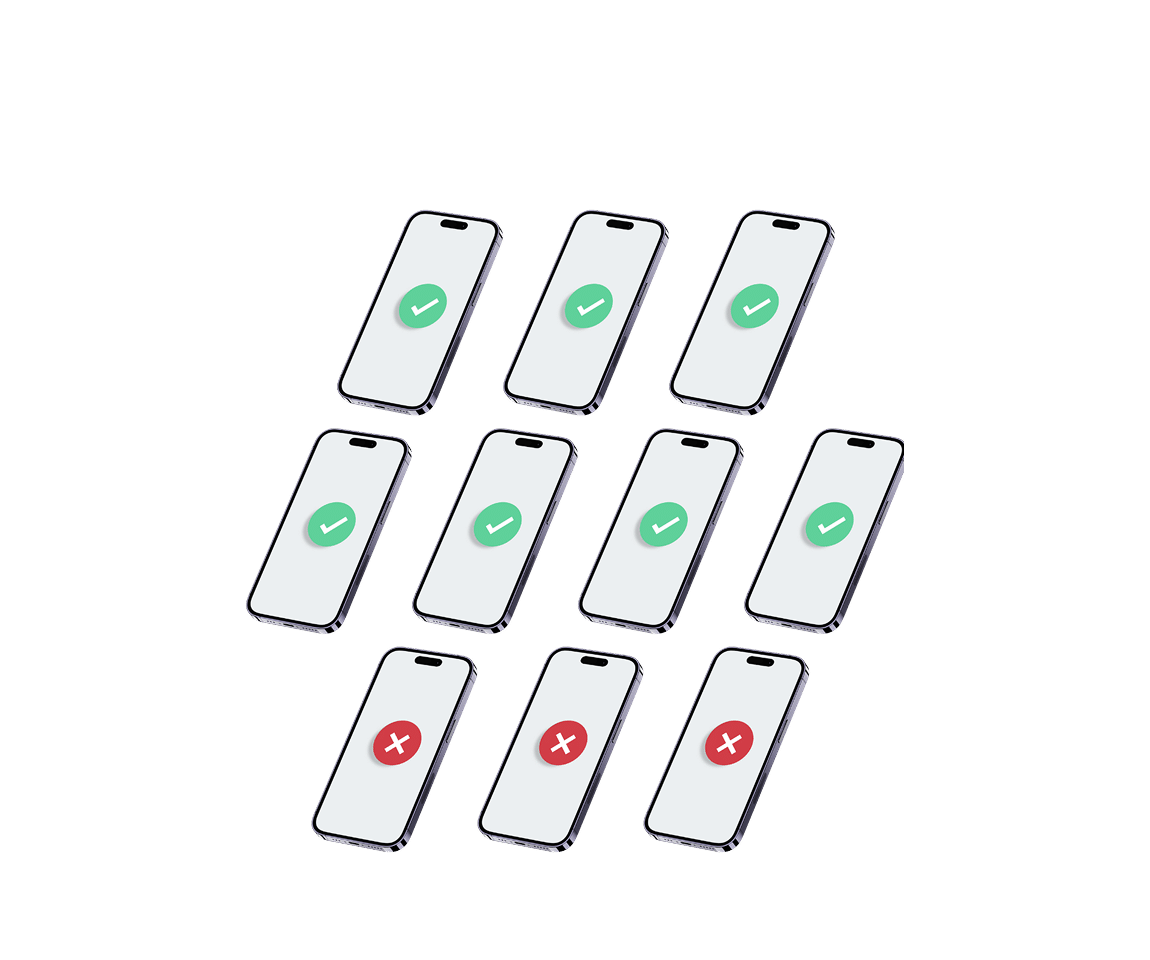

What’s the most important to you when signing a contract?
A majority of 69% answered electronic signatures as a given component of the future of contracts.
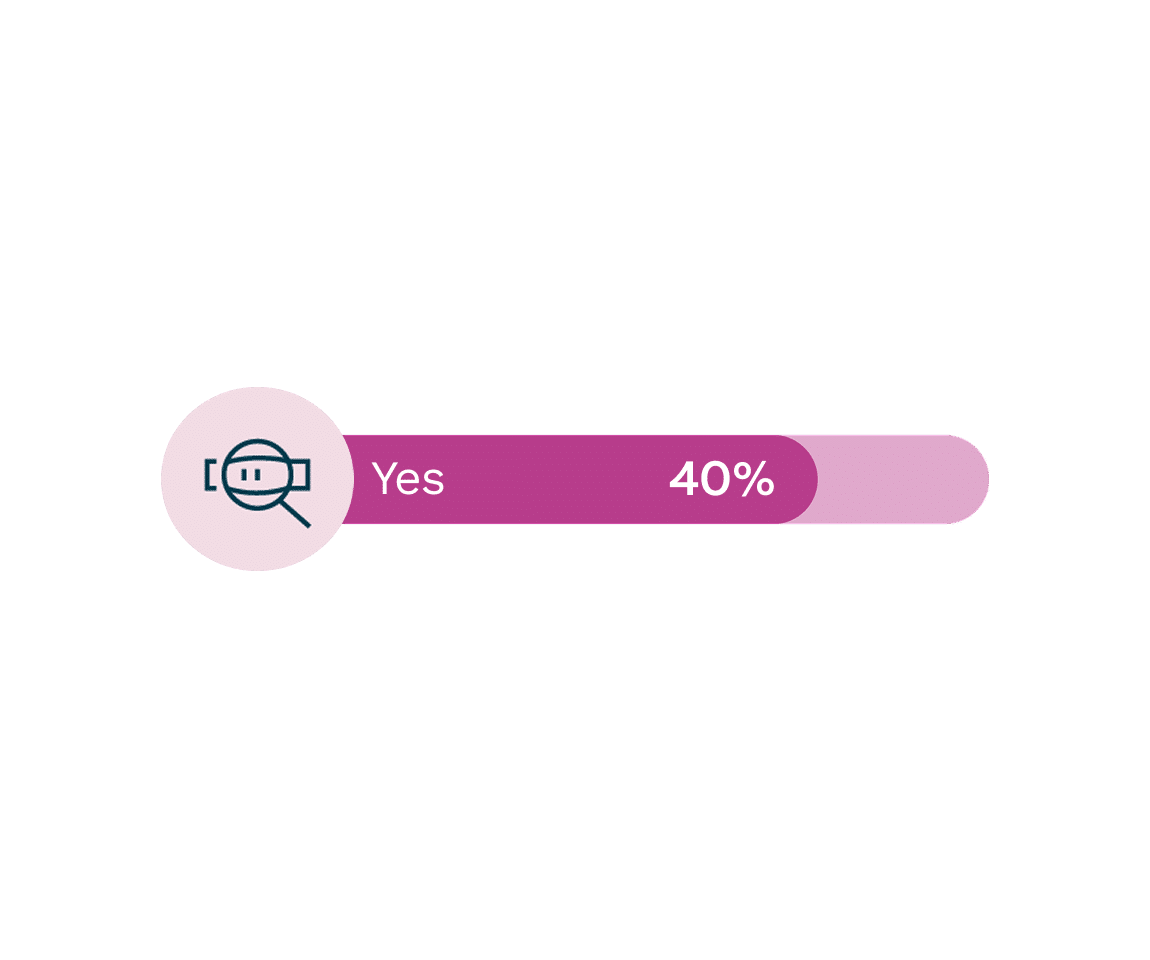
Do you trust your contracts to be stored digitally?
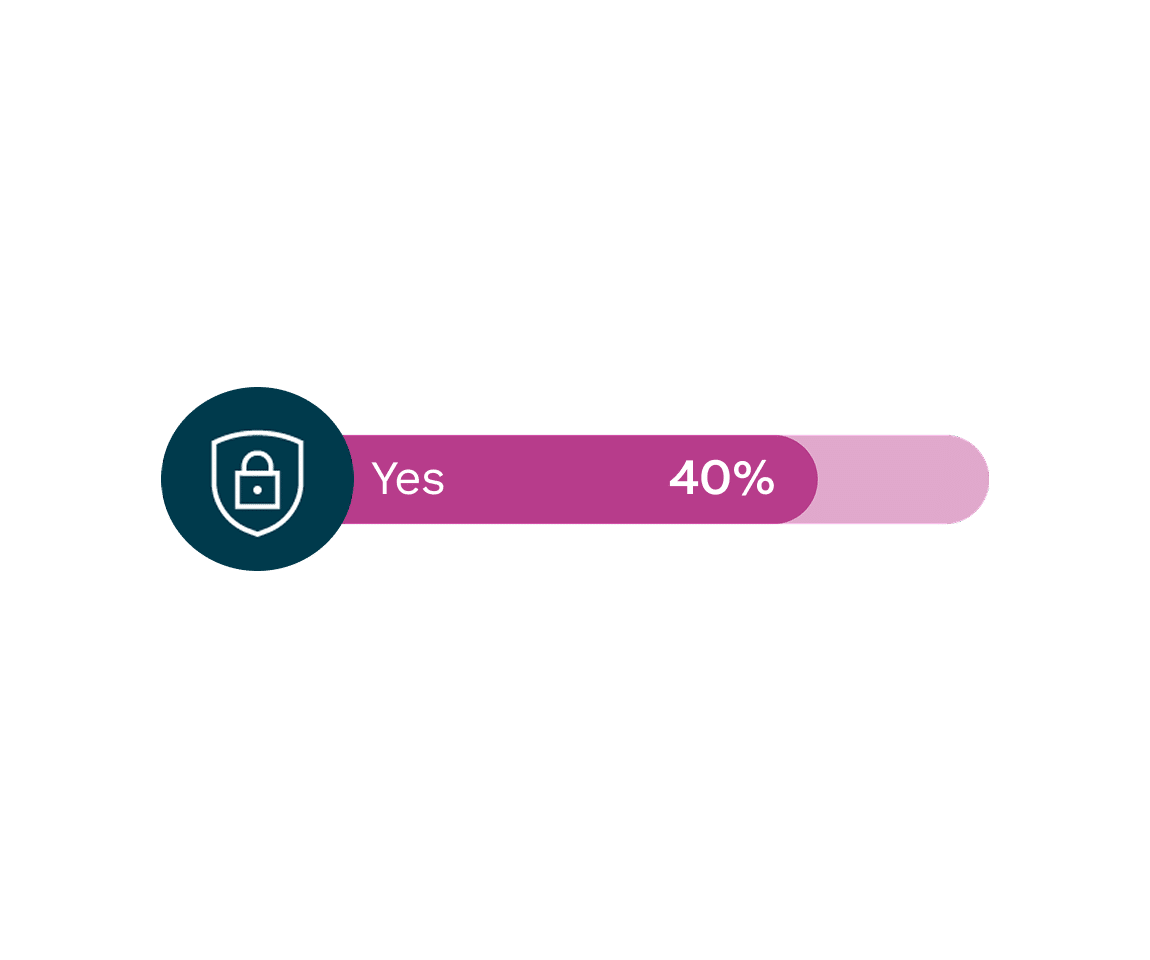
Do you trust the security of electronic signatures?
A majority of respondents are in favor of digital contracts. They agree that electronic signatures are easier to collect than handwritten ones. More than half store their contracts electronically on their computer or in the cloud and use the same software for contract signing and creation.
Over 80% trust the security of electronic signatures, as well as their contracts being stored digitally. Needless to say, businesses are making the switch from paper to digital contract management, one efficient step at a time.


Email still dominates contract communication


What kind of other communication do you go through to get a contract signed?
75% of respondents use email as a form of communication when getting their contracts signed.
The majority of respondents still use email as the primary form of contract communication. Email is great for communication in general but less ideal for sending and receiving sensitive information, like contracts. Despite the security aspect, email threads have a tendency to become lengthy – slowing down deals and causing misunderstandings. The fact that many businesses still rely on email for contract communication is a cause for concern. It’s better if all contract communication is done in a contract management system, which only people with the right permissions can access.
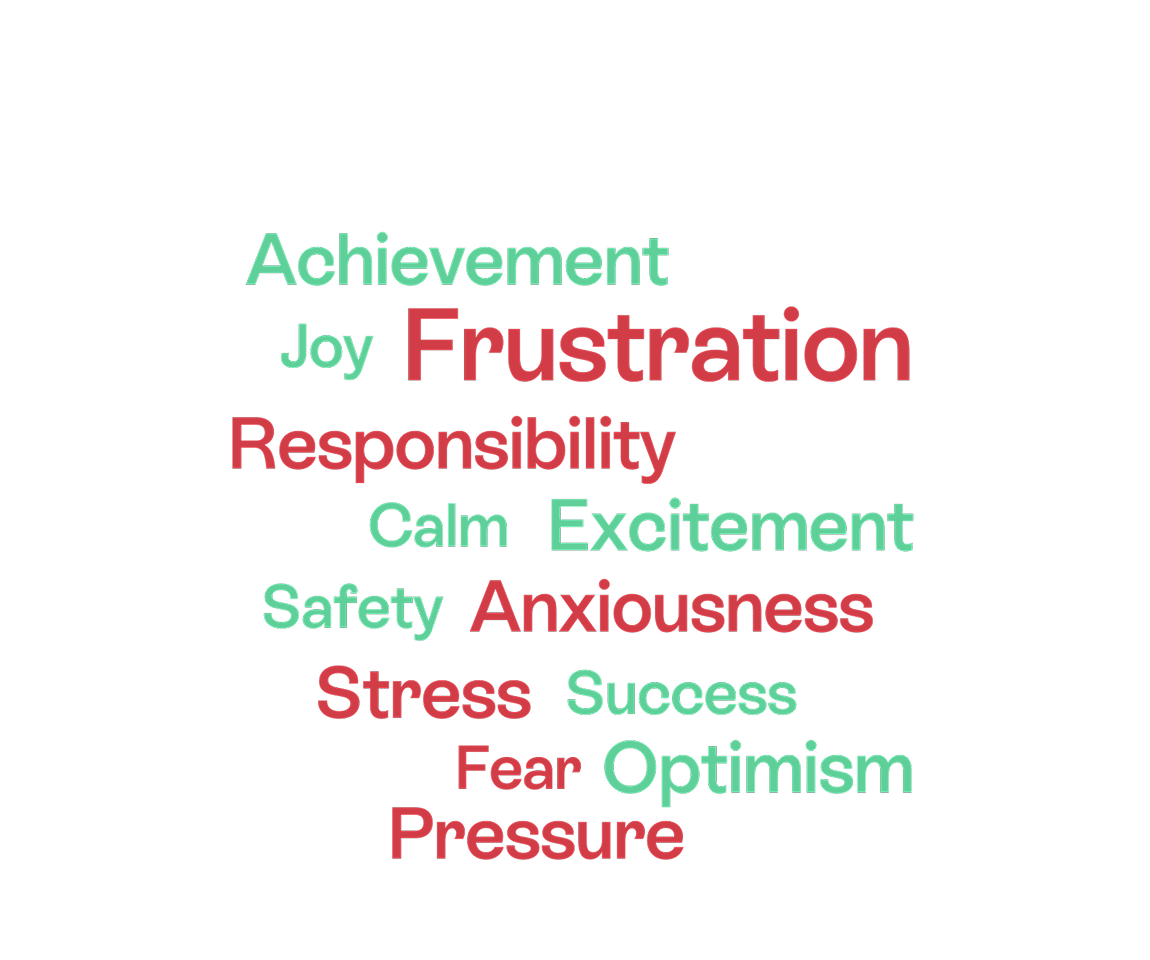

When you think about contracts, what emotions come to mind?
As we can see, contracts stir up lots of emotions! They range from joyful to scared to everything in between. Stress, pressure, and even fear were common emotions among the respondents. That’s what we’re aiming to change! Signing a contract should be a happy and celebrative moment. With the right technology, businesses can create smoother, more effortless signing processes. Changing the negative perceptions surrounding contracts and turning them into catalysts for growth and collaboration rather than sources of anxiety and frustration.
The state of B2B contracts going forward
As businesses begin to realize the benefits of digitizing their biggest assets – contracts – it also marks the beginning of the end of PDF contracts.
PDF contract is not future proof. Surely you can attach an electronic signature to your PDF file and call it a “digital contract”, but you will not experience the benefits of a true “digital contract” based on HTML (e-contract).
PDF is an image format. Think about it: why do you want to see a picture of paper when you are sitting in front of your computer screen? At Oneflow, we believe that PDF contracts will more or less die out within the next 10 years.
For starters, PDF is an abbreviation for Portable Document Format. The biggest advantage of PDF is that it retains the exact appearance of a document, no matter what platform is used to view or print it.
HTML – which is what e-contract is all about – is the language of the Web. HTML documents are thus designed for on-screen viewing and interactivity. They are intended to be accessed via computers whenever needed rather than to be printed.
For many, choosing to work with PDF contracts is often a decision made out of convenience rather than rationale. In this recent research by Jakob Nielsen, PDF has some serious usability issues and is “unfit for human consumption”.
